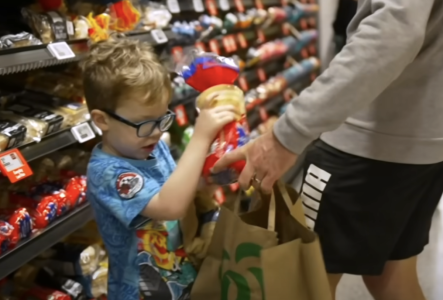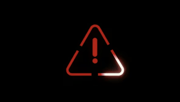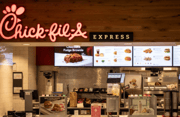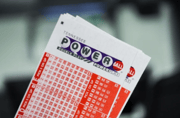Four new grocery rules that could change how you shop in 2025
By
Veronica E.
- Replies 0
Big changes are on the horizon for grocery stores across the US, and they’re likely to affect far more than just your weekly budget.
From what SNAP recipients can buy to how many self-checkout kiosks are allowed, state lawmakers are rewriting the rules that shape everyday shopping habits.
These updates aim to improve public health, reduce theft, and hold consumers accountable—but they may also create some confusion along the way.
Whether you rely on food assistance, prefer a cashier over a kiosk, or occasionally return items after one-time use, these new laws could impact how and where you shop.
Here’s a breakdown of what’s changing and what it could mean for your next trip to the store.

Twelve states are preparing to restrict the types of foods that can be purchased using SNAP (Supplemental Nutrition Assistance Program) benefits, with enforcement beginning in 2026.
Under the new rules, sugary and processed items like soda, candy, sweetened beverages, and energy drinks will be excluded from eligibility.
These changes vary by state—for example, Florida and Louisiana are specifically targeting candy and energy drinks, while others focus more broadly on sugary sodas.
Officials say the goal is to promote healthier eating and lower long-term healthcare costs.
"SNAP is meant to provide healthy food benefits to low-income families," explained USDA Secretary Brooke Rollins.
States implementing SNAP bans include:
SNAP recipients in these states will need to adjust their grocery lists to reflect the new limitations.
Some shoppers have reportedly crossed state lines to avoid restrictions, but enforcement is expected to become more consistent as 2026 approaches.
Non-SNAP users may also notice changes to product placements or in-store promotions as grocers adapt.
California is moving forward with Senate Bill 442, which would require every store with self-checkout lanes to maintain at least one traditional, fully staffed register at all times.
This shift is aimed at reducing retail theft and ensuring accessibility for shoppers who may struggle with kiosks, including older adults.
Rhode Island is weighing a similar bill that would limit stores to no more than six self-checkout kiosks and require one staffed register per two kiosks.
Lawmakers hope these adjustments will create a better balance between convenience and customer service.
Fewer kiosks may result in slightly longer wait times, but more human interaction at the register.
Shoppers who prefer speaking with a cashier or need assistance with bags, payment, or accessibility features may welcome the change.
Wardrobing—purchasing an item with the intent to wear or use it once before returning it—is now a punishable offense in eight states.
This type of return fraud can carry fines of up to $5,000 and, in some cases, jail time.
States including California, Texas, Illinois, and New York have enacted laws to crack down on the practice, citing rising retail losses and the strain on return systems.
States enforcing wardrobing penalties:
Retailers are fighting back with tighter return policies, receipt requirements, and even surveillance footage to track questionable returns.
Honest customers should make sure to keep receipts, understand store policies, and avoid purchasing items with the intent to return them after use.
Penalties range from misdemeanors with $1,000 fines to felony charges for repeat or large-scale violations.
In New York, a proposed law—Senate Bill S1279A—could restrict wine sales in grocery stores, limiting which supermarkets qualify.
Only stores that make at least 65% of their sales from food, hold a valid beer license, and span over 4,000 square feet would be eligible.
Additionally, stores located within 500 feet of a liquor store would be disqualified.
Lawmakers say the measure is designed to protect local liquor store businesses and control alcohol access.
If the bill passes, some grocery stores currently selling wine may lose that ability, forcing shoppers to make separate trips to licensed retailers.
The law is still under review, but it reflects a growing trend toward tightening alcohol sales rules in some states.
These four policy changes represent just a sample of the shifting grocery landscape in the US.
At least 20 states have introduced additional food and beverage bans, including restrictions on specific breakfast items.
In Virginia, a recent law limited the sale of a popular fast food item.
While not all proposed bans are statewide or permanent, they signal a larger movement toward regulation and reform in grocery retail.
Read next: Major shift coming to American cash: Here's why your grocery bill may look different soon

Have you experienced any of these grocery policy changes firsthand? Are you in favor of return restrictions or self-checkout limitations? Join the conversation and share your tips, questions, and stories below.
From what SNAP recipients can buy to how many self-checkout kiosks are allowed, state lawmakers are rewriting the rules that shape everyday shopping habits.
These updates aim to improve public health, reduce theft, and hold consumers accountable—but they may also create some confusion along the way.
Whether you rely on food assistance, prefer a cashier over a kiosk, or occasionally return items after one-time use, these new laws could impact how and where you shop.
Here’s a breakdown of what’s changing and what it could mean for your next trip to the store.

New grocery laws may soon impact how Americans shop, pay, and return items across multiple states. Image Source: YouTube / ABC News (Australia).
SNAP purchases limited in 12 states
Twelve states are preparing to restrict the types of foods that can be purchased using SNAP (Supplemental Nutrition Assistance Program) benefits, with enforcement beginning in 2026.
Under the new rules, sugary and processed items like soda, candy, sweetened beverages, and energy drinks will be excluded from eligibility.
These changes vary by state—for example, Florida and Louisiana are specifically targeting candy and energy drinks, while others focus more broadly on sugary sodas.
Officials say the goal is to promote healthier eating and lower long-term healthcare costs.
"SNAP is meant to provide healthy food benefits to low-income families," explained USDA Secretary Brooke Rollins.
States implementing SNAP bans include:
- Arkansas
- Idaho
- Indiana
- Iowa
- Nebraska
- Utah
- Colorado
- Florida
- Louisiana
- Oklahoma
- Texas
- West Virginia
SNAP recipients in these states will need to adjust their grocery lists to reflect the new limitations.
Some shoppers have reportedly crossed state lines to avoid restrictions, but enforcement is expected to become more consistent as 2026 approaches.
Non-SNAP users may also notice changes to product placements or in-store promotions as grocers adapt.
Also read: Another state may soon add new grocery restrictions—what it could mean for shoppers
Self-checkout downsized in California and beyond
California is moving forward with Senate Bill 442, which would require every store with self-checkout lanes to maintain at least one traditional, fully staffed register at all times.
This shift is aimed at reducing retail theft and ensuring accessibility for shoppers who may struggle with kiosks, including older adults.
Rhode Island is weighing a similar bill that would limit stores to no more than six self-checkout kiosks and require one staffed register per two kiosks.
Lawmakers hope these adjustments will create a better balance between convenience and customer service.
Fewer kiosks may result in slightly longer wait times, but more human interaction at the register.
Shoppers who prefer speaking with a cashier or need assistance with bags, payment, or accessibility features may welcome the change.
Also read: Self-checkout shakeup—Here’s what’s changing!
Return fraud laws target "wardrobing"
Wardrobing—purchasing an item with the intent to wear or use it once before returning it—is now a punishable offense in eight states.
This type of return fraud can carry fines of up to $5,000 and, in some cases, jail time.
States including California, Texas, Illinois, and New York have enacted laws to crack down on the practice, citing rising retail losses and the strain on return systems.
States enforcing wardrobing penalties:
- Arizona
- California
- Florida
- Georgia
- Illinois
- Michigan
- New York
- Texas
Retailers are fighting back with tighter return policies, receipt requirements, and even surveillance footage to track questionable returns.
Honest customers should make sure to keep receipts, understand store policies, and avoid purchasing items with the intent to return them after use.
Penalties range from misdemeanors with $1,000 fines to felony charges for repeat or large-scale violations.
Also read: Use it, then return it? The surprising trend retailers are seeing
Wine sales could shrink in New York
In New York, a proposed law—Senate Bill S1279A—could restrict wine sales in grocery stores, limiting which supermarkets qualify.
Only stores that make at least 65% of their sales from food, hold a valid beer license, and span over 4,000 square feet would be eligible.
Additionally, stores located within 500 feet of a liquor store would be disqualified.
Lawmakers say the measure is designed to protect local liquor store businesses and control alcohol access.
If the bill passes, some grocery stores currently selling wine may lose that ability, forcing shoppers to make separate trips to licensed retailers.
The law is still under review, but it reflects a growing trend toward tightening alcohol sales rules in some states.
How to stay prepared
- Know your state’s laws: Grocery rules vary from state to state, and local regulations may differ from national headlines.
- Plan ahead: If you use SNAP benefits or prefer self-checkout, plan your trip with possible restrictions in mind.
- Be honest with returns: Even minor return fraud can result in serious consequences.
- Ask store employees for help: Staff are learning these rules too and can help clarify in-store changes.
Also read: New driving law takes effect August 1—here’s what you need to know
More changes may be coming
These four policy changes represent just a sample of the shifting grocery landscape in the US.
At least 20 states have introduced additional food and beverage bans, including restrictions on specific breakfast items.
In Virginia, a recent law limited the sale of a popular fast food item.
While not all proposed bans are statewide or permanent, they signal a larger movement toward regulation and reform in grocery retail.
Read next: Major shift coming to American cash: Here's why your grocery bill may look different soon
Key Takeaways
- Twelve states will begin restricting SNAP purchases of sugary and processed foods in 2026, including soda, candy, and energy drinks.
- California and Rhode Island are considering laws to limit self-checkout kiosks and require staffed checkout lanes to improve accessibility and security.
- Eight states now penalize wardrobing, with fines up to $5,000 or jail time for fraudulent returns of worn or used items.
- A New York bill may limit which grocery stores can sell wine, based on store size, food sales percentage, and distance from liquor stores.
Have you experienced any of these grocery policy changes firsthand? Are you in favor of return restrictions or self-checkout limitations? Join the conversation and share your tips, questions, and stories below.






